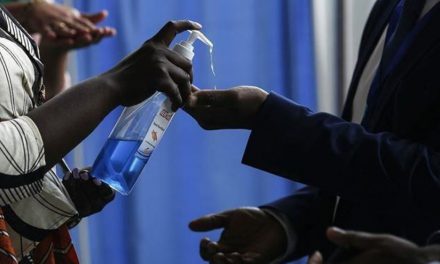
The evolving illicit drug trade in the western Indian Ocean.
Hillary Murani
FIGURE 1 Monthly breakdown of maritime incidents reported to RMIFC in 2020.
NOTE: Mayotte is a key destination for human smuggling in the western Indian Ocean, and incidents reported to RMIFC are concentrated on this route.
SOURCE: RMIFC Annual Report 2020
Restrictions to limit the spread of COVID-19 – lockdowns, curfews, and states of emergency – have had a significant impact on illicit markets along the Indian Ocean Coast according to a new report The Global Initiative Against Transnational Organized Crime (GI-TOC) report. The report, dubbed, ” Changing Tides: The evolving illicit drug trade in the Western Indian Ocean,” indicated that he islands (namely Mauritius, Seychelles, Madagascar, the Union of Comoros and the French Overseas Territories of Mayotte and Réunion) are particularly vulnerable because of their proximity to a major heroin trafficking route and growing regional methamphetamine and cocaine routes
The report, authored by Lucia Bird, Julia Stanyard, Vel Moonien and Riana Raymonde Randrianarisoa, shows that drug markets are expanding and diversifying, fueling corruption and driving growing domestic consumption.
“Drug markets penetrate the society of each of the island states, driving cultural change and entrenching inequality. In Mauritius, some networks have demonstrated the characteristics of a shadow welfare state, contributing to funeral or wedding arrangements, paying electricity and water, and distributing food during Covid-19 lock-downs in 2020 and 2021″cited the report.
It indicated a 50% drop in maritime-security incidents between February and March 2020 according to the Regional Maritime Information Fusion Centre (RMIFC), which tracks illicit maritime activity across the Indian Ocean from its base in Madagascar. This was primarily driven by decreases in illicit flows such as the smuggling of contraband and people.
The report indicated that RMIFC incident data noted that drug-smuggling incidents and reported activity remained steady throughout 2020 bar seasonal fluctuations, in line with previous annual trends.
“Only drug flows continued ‘unaffected throughout’ the pandemic.’’ The report read in part.
Further, the islands of the western Indian Ocean (namely Mauritius, Seychelles, Mayotte, Réunion, Madagascar, and Comoros) are home to well-established illicit drugs markets, according to the GI-TOC. Mauritius and Seychelles suffer from among the highest opiate consumption rates in the world.
“Synthetic-cannabinoid use has exploded across Mauritius, Mayotte and Comoros since 2015, and ever-greater volumes of drugs are being trafficked through Madagascar,’’ GI-TOC remarked.
On the other hand, Madagascar is home to significant illegal markets in natural resources, from logging to gemstones and endangered species. While Mauritius and Seychelles have been identified as conduits for illicit financial flows. GI- TOC observed that corruption is a major facilitator of drug markets and other forms of organized crime and erodes the governance of the island states. It described the region as a hub of abundant biodiversity where illegal markets are a significant part of the political economy of the region, particularly illicit drug markets.
The GI-TOC report noted that the Seychelles and Mauritius have some of the highest rates of heroin use in the world, and markets for synthetic cannabinoids have also become established in Mauritius, Mayotte, and Comoros.
The report concluded that drug markets are diversifying as cocaine and methamphetamine trafficking through the region grows. The proximity to the significant ‘southern route’ for heroin trafficking – where heroin cultivated in Afghanistan is trafficked through East and southern Africa for consumption there and for transit to markets in Europe and the US – has made the Indian Ocean islands vulnerable. Remarked GI-TOC
The economic impact of the pandemic on the islands has been severe and the loss of tourism has dealt a significant economic blow to the region, and interviewees across the islands expressed concerns that rising unemployment would further swell the burgeoning drugs market. The report read in part






















Recent Comments